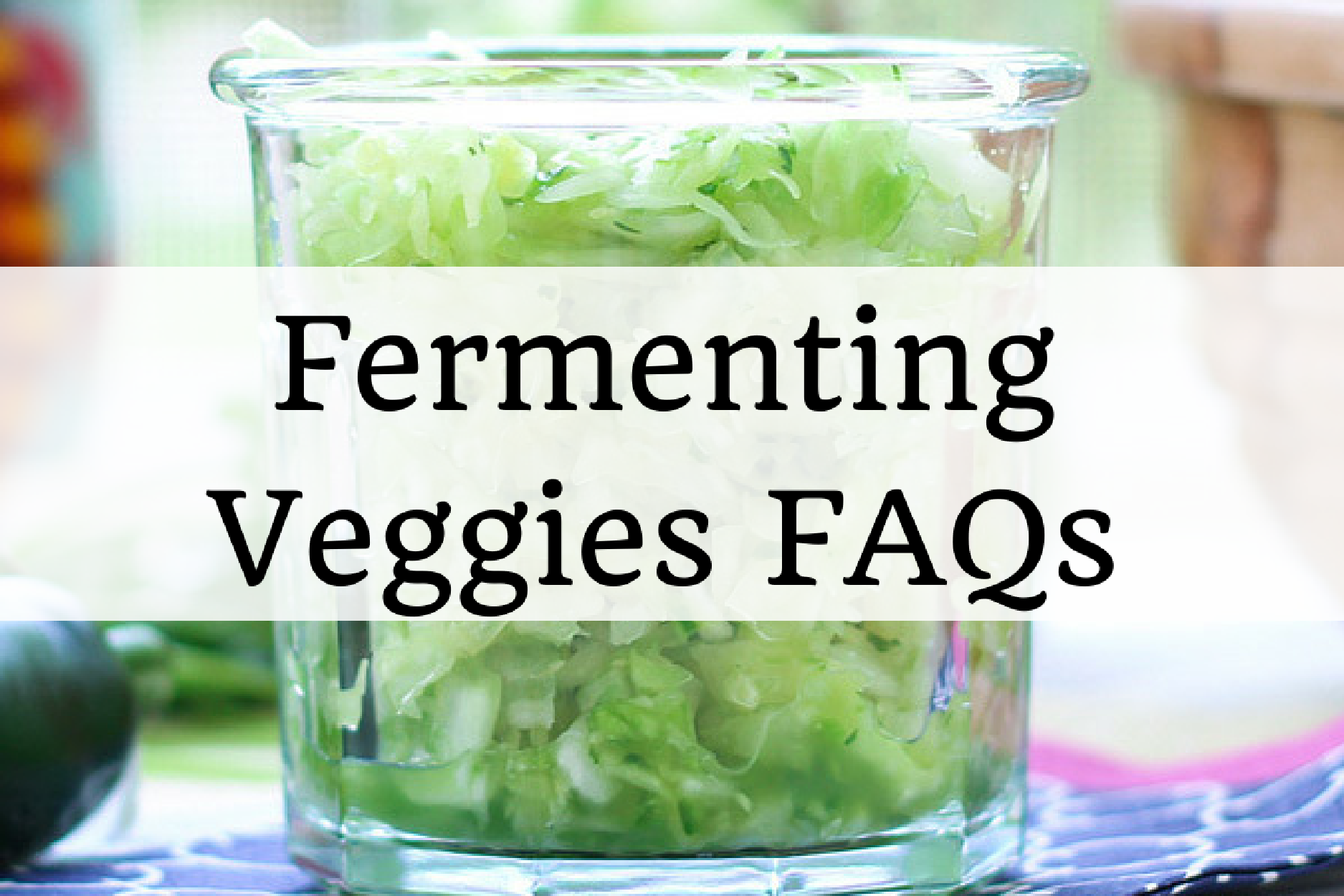
Fermenting Veggies FAQs are the frequent questions I get about fermenting sauerkraut, pickles, and other veggies.
Does cooking sauerkraut kill the probiotic bacteria?
Yes, if cooked above 108 degrees fahrenheit it will kill the probiotic bacteria.
Does freezing fermented veggies kill probiotics?
Based on the research I’ve done, it may kill some of them, but not all. It’s better to store them in the refrigerator for the long term to retain most of the probiotic bacteria.
Can fermented vegetables be stored in plastic containers like Tupperware?
I don’t recommend storing them in plastic, because the acetic acid from fermented vegetables, like sauerkraut can cause the plastic to leach chemicals. I suggest storing them in glass jars instead.
I fermented cloves of garlic and they have turned green, bluish green. I wonder if this could be botulism. How can I check or test for that?
It’s normal for pickled/ fermented garlic to turn blue or bluish green. It may be a result of trace minerals in your water. It happens sometimes when you cook with garlic too.
The leading cause of botulism is improper canning techniques. It’s very unlikely that you could get botulism in fermented foods. The environment created from fermenting foods is inhospitable to botulism. You can learn more about it here: https://www.
Can a Kefir starter be used to ferment vegetables?
Yes, you can use a kefir starter for veggies, but they may turn out mushy and soft. I suggest using a culture starter for fermented vegetables or none at all. I use a salt water brine and it turns out great.
Do you need a culture to make sauerkraut or pickles?
No. The vegetables have naturally occurring bacteria on them.
How long can you store sauerkraut before it goes bad?
Sauerkraut will last several months if stored in a cool place and if it remains under its brine. Sauerkraut ages well and develops more flavor the longer it ferments. Even in cold storage, it will continue to ferment slowly. It’s safe to eat unless there is mold on it or it smells rancid.
How do I keep the veggies submerged under the brine?
If you’ve been having difficulty keeping your sauerkraut or pickles submerged under the brine during the fermentation process, you can use a rolled up cabbage leaf, a rock, a small jar, or pickle weights. Keeping them submerged helps prevent mold. This post, “Ways To Keep Veggies Under The Brine” goes into more detail.
What is the white milky stuff on my vegetables?
How do you ferment vegetables, sauerkraut, kimchi, pickles, etc without making my family sick?
Lacto-fermentation is the method we use on this blog and it’s very safe. The brine creates an environment where harmful bacteria can’t survive making the food safe and healthy for eating. Read these tips on how to ferment vegetables safely and prevent mold here.
My sauerkraut or pickles came out too salty. What do I do? How do I prevent them from being too salty?
I wrote a post about this, 3 Simple Steps To Making Perfectly Salted Sauerkraut, here.
My cucumber pickles turned out mushy. How do I make them crunchy or prevent them from being mushy?
I wrote a post about that here. 8 Tips For Crunchy Pickles